Fair Pay to Play Act
The California Fair Pay to Play Act- Finally IP Social Justice for Student Athletes
Earlier this month Governor Gavin Newsom signed into law the Fair Pay to Play Act, the nation’s first law to override the NCCA’s prohibition which prevents student athletes from commercially exploiting their IP and related legal rights. See California Law Takes Paying College Athletes Out of the NCAA's hands. The NCAA maintains its rule notwithstanding the fact that the NCAA requires student athletes to permit the NCAA to exploit those very same rights to obtain millions in revenues every year.
For years, some legal scholars (see e.g. Lateef Mtima, What's Mine Is Mine but What's Yours Is Ours: IP Imperialism, the Right of Publicity, and Intellectual Property Social Justice in the Digital Information Age) and many social activists have urged that the NCAA rules allowed the grossly unfair exploitation of student athletes, many of whom hail from marginalized, working class, and rural communities, and for whom the college athletic scholarship system provides the only opportunity to obtain a college education. Although at one point it seemed that the courts were willing to curtail NCAA rules and allow students to protect their IP rights from unfair exploitation, this progressive wave came to a halt when the United States Court of Appeals for the Ninth Circuit overturned a California District Court ruling that the NCAA prohibition violates the federal antitrust laws. Instead, the Court of Appeals declared that the NCAA rule satisfies the antitrust “rule of reason” doctrine, which effectively permits an antitrust violation where the social benefits outweigh the social harms (raising the question as to whose “benefits” count and whose “harms” don’t.)
Under the new law, college athletes in California will be permitted to accept commercial endorsements and hire agents beginning in 2023. Hopefully the Fair Pay to Play Act will inspire similar legislation in other states, and finally allow all student athletes to share in the millions of dollars of commercial revenues they generate every year.
We will continue this important conversation during our annual CLE program.
In Memoriam Donald Dunner
In Memoriam
Donald R. Dunner: A Leader in Patent Legal Practice and A Champion for IP Social Justice
On October 16, 2019, the legal profession and the IP social justice community lost one of their pillars when Donald R. Dunner, name partner at Finnegan, Henderson, Farabow, Garrett & Dunner, LLP, passed away at the age of 88. Donald R. Dunner enjoyed a distinguished legal career and leaves an indelible imprint on contemporary patent law and practice.
One of the most accomplished and influential patent lawyers of his generation, Don Dunner helped to shape the contours of contemporary patent legal practice, not only through his successful representation of a wide array of clients, but also in supporting the progressive evolution of patent law. Under his auspices in 2003, the Finnegan law firm began its collaboration with IIPSJ to establish the nation’s first IP and Social Justice Continuing Legal Program, developed and implemented by Finnegan attorneys Tom Irving and Esther Lim and hosted by the Howard University School of Law. Now in its seventeenth year, the IIPSJ CLE program continues to educate IP attorneys and policy makers from around the nation as to the social justice obligations and opportunities presented by IP protection.

One of the program’s most highly regarded features is the Judicial Roundtable Panel, wherein Don Dunner would moderate an annual open conversation with sitting members of the federal judiciary and explore cutting edge developments in the field of IP law, including important issues which implicate the law’s social justice resonance in the total political economy. Don would often use this opportunity to ask the judges to share guidance for students in the audience seeking clerkships. It was Don Dunner’s stature and reputation in the patent bar that attracted leading jurists to share their insights and perspectives and thereby make the Judicial Roundtable Panel and the IP and Social Justice CLE program a unique and highly respected professional education experience.
While Don Dunner’s practice impacted major issues in patent law, his professional efforts went beyond “top down” approaches to improving the field. A thoughtful and earnest mentor, Don Dunner guided the professional development of many junior attorneys, and along with many of his colleagues at the Finnegan law firm, he was personally engaged in supporting initiatives to enhance racial and gender diversity within the IP bar. Through these efforts many attorneys gained exposure to IP legal practice and the opportunity to participate in IP-oriented internship programs and full-time practice at Finnegan and other IP law firms, and to practice IP law in various corporate in-house counsel and government legal departments.
Donald R. Dunner leaves an impressive legacy in the field of IP legal practice. From his work in various governmental commissions and studies to evaluate and improve the patent system, to his service as president of the American Intellectual Property Law Association, Chair of the American Bar Association’s IP Section, and as a recipient of the AIPLA Board of Director's Excellence Award, Don Dunner contributed much to the profession he cherished. He will be greatly missed by all of us who had the privilege to work with him, even as we continue to appreciate his enduring impact on IP legal doctrine, professional education, and the social justice aspirations of IP protection.
Letter Supporting CASE Act
IIPSJ sends a letter to Congressman Jefferies supporting passage of the CASE Act.
The Institute for Intellectual Property and Social Justice (IIPSJ) hereby submits the following comments in support of passage of the Copyright Alternative in Small-Claims Enforcement Act of 2019 (HR 2426). IIPSJ was established to address the social justice implications of intellectual property law and policy both domestically and globally. IIPSJ’s work ranges broadly, and includes the scholarly examination of intellectual property law from the social justice perspective; advocacy for social justice-cognizant interpretation, application, and revision of the intellectual property law; efforts to increase the diversity of the intellectual property legal bar; and programs to empower historically and currently disadvantaged and marginalized communities through the development, protection, use, and exploitation of intellectual property.
Click here to read full letter.
MMA
Update on the Passage of the Music Modernization Act
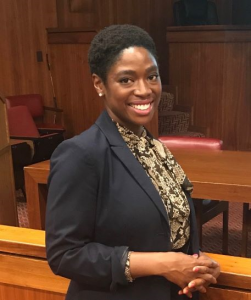 - Idia Egonmwan, a 2L student attorney in the Intellectual Property Clinic at Howard University School of Law.
- Idia Egonmwan, a 2L student attorney in the Intellectual Property Clinic at Howard University School of Law.
As many of our membership will recall, earlier this year IIPSJ submitted to Congress both formal comments and also a letter on behalf of intellectual property law and other scholars to support passage of the Compensating Legacy Artists for their Songs, Service, and Important Contributions to Society (CLASSICS) Act and the Music Modernization Act (MMA), and otherwise undertook a public campaign in support of these legislative bills. We are pleased to report that these and other grassroots and other efforts were successful and both acts were passed by Congress on September 18, 2018 (combined into a revised Music Modernization Act) and signed into law by President Trump on October 11, 2018.
What is the Music Modernization Act (MMA)?
The MMA mitigates many of the economic and social inequities perpetuated in the music recording business by creating uniformity in legal protection for pre- and post-1972 sound recordings via the federal copyright system.[1] The MMA is broken into three parts:
- Title I establishes a musical licensing collective to issue and administer blanket mechanical licenses for the use of sound recordings to digital music services and to and collect and distribute royalty payments directly to rights owners, including performing artists;
- Title II compensates pre-1972 sound recording artists by creating a royalty structure; and
- Title III creates a legal right for various musical contributors (producers, mixers, and sound engineering) to collect royalties for digital transmissions of sound recordings.[2]
The IP Social Justice Impact of the MMA
African American and other marginalized creators and artists have historically suffered from legal and social limitations upon their freedom to contract, inequities exacerbated by the systemic manipulation and abuse of the copyright law and music sound recording contracts and licensing agreements. “Legacy” recording artists such as Otis Redding, Martha Reeves and the Vandellas, and the Temptations were especially disadvantaged in that copyright protection did not extend to pre-1972 sound recording.[3] As a result of the passage of the MMA, composing artists will benefit from more equitable royalty structures under the Copyright Section 115 compulsory mechanical (recording) license (which historically exploited the inferior bargaining power of all artists, but particularly artists of color) (Title I); limited music copyright protection in the form of a digital performance right has been extended to pre-1972 “Legacy” sound recording artists (Title II); and a right for previously uncompensated producers, mixers, and sound engineers to collect royalties for their creative contributions has been established. (Title III).
Fair Compensation and IP Social Justice for Music Creators and Performers
The Music Modernization Act (MMA) is a progressive step for copyright law and the American recording industry, ultimately providing legacy, current, and future musical artists with more equitable compensation for creating, sharing, and performing their work. Utilizing intellectual property as a means of social justice in the music industry is a small subset of how IP law can be used to empower and rebuild marginalized communities. Although not perfect, the MMA represents the outcomes that can be achieved when legal scholars, legislators, and intellectual property and other social justice activists collaborate to preserve the purpose of copyright and other intellectual property law: to promote and encourage socially equitable and beneficial creative labors.
[1] See the Letter from Lateef Mtima, Dir., Institute for Intellectual Property & Social Justice, to Chuck Grassley, Chairman, U.S. S. Comm. on the Judiciary, Dianne Feinstein, Ranking Member, U.S. S. Comm. on the Judiciary, Bob Goodlatte, Chairman, U.S. House of Rep. Comm. on the Judiciary, Jerrold Nadler, Ranking Member, U.S. House of Rep. Comm. on the Judiciary (Mar. 14, 2018)
[2] See Mark Wittow, A Modern Melody for the Music Industry: The Music Modernization Act Just Passed Congress and Awaits Presidential Approval, The Nat’l Law Review (Oct. 2, 2018), https://www.natlawreview.com/article/modern-melody-music-industry-music-modernization-act-just-passed-congress-and-awaits
[3] Id.
Net Neutrality, CLE, Blurred Lines, and Recent Events
Highlights from IIPSJ's 15th Annual IP and Social Justice CLE Program at the Howard University School of Law Check out our website for highlights from this year's CLE program. We take a look back at 15 years of providing CLE programming on IP and Social Justice, as well as provide a summary of the event and some of the panels including student reporting on various panels available at the specified links
|
For Graffiti Artists, Musicians, Small Business Owners, and more
|
||||||||||||||||
|
Blurred Lines Decision a Social Justice Win?
Blurred Lines’ ruling brings justice to composers like Marvin Gaye
In mid-March, a federal appellate court correctly affirmed the 2015 verdict against Robin Thicke and Pharrell Williams, finding their 2013 “Blurred Lines” hit infringed on Marvin Gaye’s seminal “Got To Give It Up.”
Unhappy with the result, Thicke and Williams have just requested a rehearing of the case. They are likely bolstered by critics who claim composers will be stifled and fearful because of the ruling. But the sky is not falling: The creation of new music can proceed as it always has before.
In fact, the ruling may clarify the scope of musical works, by endorsing audio recordings as evidence of the compositions of “aural” composers who do not use European-based sheet music. This advances social justice for songwriters from disadvantaged backgrounds who were exploited under earlier copyright registration rules and fosters the creation of original compositions going forward.
Our litigation system, contested facts are usually sent to the jury. A judge will decide copyright infringement as a matter of law only where there is a complete absence of credible evidence on one side. In the “Blurred Lines” case, expert musicologists for both sides presented reasonable evidence. Consequently, the trial court rightly submitted this factual dispute for the jury to decide, and the appellate court affirmed that decision.
All parties agree that neither musical style nor musical genre is protected by copyright. Style and genre are abstractions that identify the kinds of musical elements repeatedly used by a composer (style) or by composers in a particular musical field (genre). As abstractions or ideas, they are not copyrightable. Groove is not an abstraction, but rather the particular rhythm instrument parts of a composition taken together. As with any other specific and original composed parts, or particular original combination of parts, a groove can be protectable.
The Gayes’ experts identified particular expressions of both (1) individual elements, such as an original bass line and vocal melodies, and (2) a compilation of musical elements. They also opined that these elements had been copied by Williams and Thicke.
The Thicke parties retained their own experts who disagreed. Because of the importance of observing witnesses and experts firsthand in making decisions about credibility, appellate courts normally defer to jury verdicts absent fatal procedural errors. It is not a judge’s role to second-guess evidence properly presented by a party. The underlying rules of law and procedure have not been changed by the “Blurred Lines” decisions. Indeed, the decisions are examples of those rules being applied in a straightforward fashion.
But something else may have changed for the better. Gaye, like many iconic 20th-century pop composers, was not fluent in European-based sheet music notation. The copyright registration system of the time required “aural” composers (those composing by ear) such as Gaye to submit written notation. Music publishers had employees score a bare-bones interpretation of the composer’s actual song, which might not contain all of its parts, as a placeholder for the full composition.
Multitrack recording technologies allowed aural composers to “score” and arrange their songs on tape. Actual recordings are the best evidence of the full scope of the composition. The year after Gaye composed “Got to Give It Up” in the recording studio, the U.S. Copyright Office changed its rules and allowed the deposit of audio recordings of musical compositions for copyright purposes.
In an amicus brief to the appellate court, we argued that courts should allow such recordings as evidence of the full scope of aural composer’s works. The appellate court noted this and stated that trial courts could address the use of this evidence. Going forward, justice may finally be done for aural composers who have been systematically exploited by the system.
IP Community Outreach, Education, and Pro Bono legal support
Recent E-Mail Update
This month our focus is on IP Community Outreach, Education, and Pro Bono legal support. IIPSJ is involved in various new initiatives to promote IP Empowerment and entrepreneurship in marginalized communities which we thought you might find of interest.
The Lawyers’ Committee for Civil Rights: Creative Control
This Fall the Lawyers’ Committee for Civil Rights will launch Creative Control – an initiative which will examine how intellectual property law and policy impacts historically marginalized communities and will provide pro bono IP legal support to community creators and innovators. The goal of Creative Control is to educate community creators and innovators as to the importance of IP rights and protections, to empower online expression, and to provide one-on-one free legal advice from IP attorneys.
LCCR hosted a soft launch of Creative Control at Smith Commons on July 25, 2017, at which more than 70 community creators joined IP experts for discussions on IP protection and how IP law and policy impact creators. In addition, LCCR collaborated with lawyers from the Hogan Lovells law firm to provide one-on-one legal sessions for 22 DC community creators.
IIPSJ Director Professor Lateef Mtima participated in the July soft launch of Creative Control – here’s a link to a sixty-second montage of the launch which highlights the diversity of the attendees and the legal and creative talent showcased during the event:
The official launch this Fall will also include the release of the LCCR white paper, know your (IP) rights primer and the commencement of the pro bono IP legal clinic component.
IP Pro Bono Clinic Database
We have recently updated our website to add a growing list of IP legal clinics and other resources for low or no cost legal services.
Other Topic of Interest
Recently, a federal district court judge struck down part of the copyright for the song “We Shall Overcome”. The song is of unknown origin and was particularly popular during the civil rights era. The copyright was held by several songwriters, including Pete Seeger, since the 1960’s for changes to the original melody and some of the wording. Part of the royalties from the copyright is used for social and cultural programs in the South.
You can read more in the New York Times article “'We Shall Overcome’ Verse Not Under Copyright, Judge Rules” or listen to a music news segment on National Public Radio “Federal Judge Rules First Verse Of 'We Shall Overcome' Public Domain.”
Follow-up on Net Neutrality – Last month we discussed the FCC rulemaking on Net Neutrality. We appreciate the many comments and questions we received in connection with our distribution on net neutrality, we thought you might be interested in formal comments file by National Hispanic Media Coalition regarding the social justice implications. You can find the full comments here and a summary here.
15th anniversary
Celebrating 15 Years
of Intellectual Property &
Social Justice CLE
“The IP and Social Justice CLE Program was established and has been sustained by members of the Bench, Bar, and corporate and institutional supporters who envision the principles of access, inclusion, and empowerment as inherent to the social function of IP protection. This annual exploration of cutting edge developments in IP law, informed by consideration of social justice issues, is fittingly enriched by the most consistently diverse congregation of CLE IP faculty and attendees in the nation. It is a privilege to be a part of this enduring, collaborative effort to assist IP lawyers in achieving the Houstonian professional equipoise of technical proficiency in service to the greater societal good.”
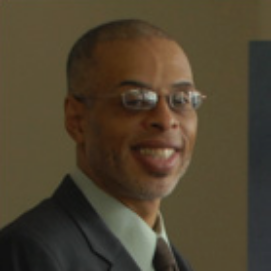 - Professor Lateef Mtima
- Professor Lateef Mtima
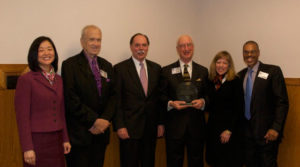
Much of Howard University’s history is about courageous people who put their lives on the line to open the door to opportunity not just for some people but for all. Intellectual property is all about opportunity and the protection of individual rights—opportunity based not on your ethnicity or your sexual preference, or the color of your skin, your religious beliefs, or your station in life, but instead on your creativity, your ingenuity, your intellect, and your abilities. Intellectual property is about opportunity and protecting the creative rights of all people, whoever they might be. In that sense, intellectual property has much in common with the struggle for social justice. I congratulate Howard University and Professor Lateef Mtima, the Founder and Director of the Institute for Intellectual Property and Social Justice, for fifteen years of excellence in educating the future leaders of the intellectual property bar. – Judge Richard Linn
Thoughts from Those There at the Beginning
Read more about the start of the CLE program here.
15 years ago, Howard University School of Law was pretty much an unknown on the IP front. But under the leadership of Professor Mtima and others at Howard, the IP and Social Justice CLE was inaugurated. Outside lawyers and distinguished members of the Judiciary have volunteered their time to the CLE to greatly increase the IP profile of Howard. For me, it has been enormously satisfying to watch this growth. May it continue. – Thomas Irving
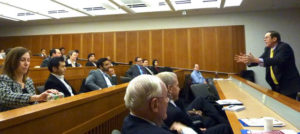
From inspirational vision of Professor Mtima and so many others at Howard University School of Law, we celebrate the 15th Anniversary of IIPSJ’s Annual IP and Social Justice conference. The conference has benefitted from the staunch support of judges, corporate counsels, outside counsels, and of course the fabulous Howard law students. It has been an absolute privilege and honor serving as the Chair of this conference and witnessing its growth over the years. Congratulations on the 15th Anniversary! – Esther Lim
I had the honor of being part of the creation of the Institute and the many wonderful “firsts” - the first CLE program, The first internship at Finnegan Henderson, the first special edition of the law journal, the first visit to the chambers of the CAFC, the first WIPO attendance etc. - It was a tremendous amount of work for an ever evolving cause with countless unanticipated rewards that flow-through my career and life. In fifteen short years, Institute has had an immeasurable impact on a macro and micro level on society, law, lawyers, entrepreneurs, inventors, creators and justice and has enabled me to work to leave a legacy that will inspire future generations. I am forever grateful. – Tameka Simmons
___________________________________________
IP & SOCIAL JUSTICE THROUGH THE YEARS
Through tireless efforts of Prof. Mtima most especially, but also through the supportive and independent efforts of many the others including especially those who have supported and continue to support IIPSJ, the social justice perspective has now worked its way into the very fabric IP discourse and reform at all levels of IP law, policy, advocacy, and administration. I have been most pleased to have been able to contribute to this project for the past 15 years and plan to continue to do so for awhile yet. – Steven Jamar
2007 Intellectual Property and Social Justice Symposium
Introductory Remarks: Applying the Intellectual Property Law in the Public Interest: Copyrights And the Public Use of Software
Presentation: Granting Patents Based On Race: The Practitioner’s Role in Shaping Social Policy
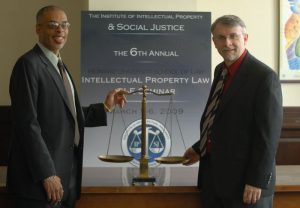
2009 Intellectual Property and Social Justice Symposium Presentation: Where Intellectual Property Theory Meets ‘Outsider’ Jurisprudence–What African-American Cultural Production Can Teach IP Policy

2011 Intellectual Property and Social Justice Symposium Presentation: Intellectual Property and the Pursuit of Civil Rights: Issues & Challenges for the Digital Information Age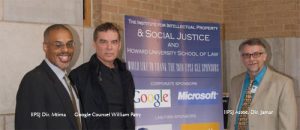
2014 Intellectual Property and Social Justice Luncheon Presentation: Intellectual Property Social Justice: Civil Rights and Economic Empowerment in the 21st
It has been my honor and privilege to participate in Howard’s IP and Social Justice CLE for more than ten years. This is the only CLE of which I am aware that is focused on highlighting the intersection of intellectual property and social justice. It is through this CLE and other work that IIPSJ demonstrates a commitment to ensuring equal access to our intellectual property systems, domestically and abroad. - Toni Y. Hickey
2017 Intellectual Property and Social Justice Luncheon Keynote: Property, Intellectual Property, and Social Justice: Mapping the Next Frontier
CLE Impact & Opportunities
The CLE programs help HUSL alumni and other practitioners develop and maintain expertise in IP practice and provide opportunities for experienced minority IP lawyers to demonstrate their expertise to an audience they might not otherwise reach. The CLE programs also provide networking opportunities for lawyers from diverse groups including attorneys from private practice, from government, from the judiciary, and from academia.
Having attended Howard University School of Law and entered into the IP profession as a patent attorney prior to the establishment of the IP & Social Justice CLE Program, I am so very honored and proud to see the impact that it has had on the students and the IP community as a whole by providing opportunities that previously were hard to come by or not available at all for diverse lawyers in IP law. – Jennifer M. Hayes
As a proud member of the class of 2005… I continue to take pride in this program as an essential element of my continuing legal education. The CLE is uniquely rooted in Howard’s mission of social justice, offering invaluable insights from esteemed members of the bar and bench. I am honored to join the 15th year of this program, and I look forward to returning for many years to come. – Idris McKelvey
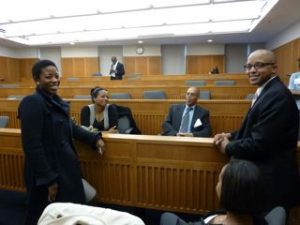
The IIPSJ CLE event has been essential in helping to direct the trajectory of my career. Every year I have participated, through the various modules and panel discussions, I walked away with a solid grasp of the current trends in the profession. Moreover, I emerged with an understanding of the future direction of the profession. Thus, I have been able to align my professional experiences with the ever evolving field of Intellectual Property. – Ulysses Williams
I came to Howard Law School with the intent to use my law degree to effect change... Attending the IP & Social Justice CLE program ... I gained a clearer understanding of the intellectual property-related social justice issues not only concerning disenfranchised people in the United States, but around the world. It is an invaluable program and service to the larger community. – Aisha (Williams) Cassis
Prior to attending law school, I spent more than a decade in the biotechnology arena as a scientist. When I entered Howard University School of Law in 2013, I knew that I wanted to be a patent attorney, however, I did not have a strong network of mentors in the patent field. I quickly joined the Howard University School of Law, Intellectual Property Student Association, and benefited from the mentorship of Professor Lateef Mtima. By attending the IP & Social Justice CLE Program each year, I was afforded the unparalleled opportunity to forge new mentoring relationships with practicing attorneys in the IP arena, and learn about emerging IP issues. This unique experience helped guide my career and continues to do so. Currently, I am a second year associate at Finnegan, Henderson, Farabow, Garrett & Dunner, LLP. – Candice R. Jones
Phil Hampton has graciously volunteered his time to participate in the CLE every year.
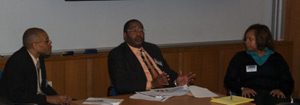
As a student here I benefited from mentoring by Professor Mtima and participation in the CLE, and soon found my passion in the practice of trademark law. By participating as an attorney, I am able to stay up to date and involved with issues of intellectual property and social justice; while continuing the tradition of mentoring the students I meet each year. Congratulations on 15 years and I look forward to the next 15 and many more! – Tashia Bunch
IP Symposium: Best Practices in Rights Clearance
As we all welcome the New Year IIPSJ continues its collaborative work in community IP education and empowerment initiatives as a co-sponsor of
Presented by the Center for Protection of Intellectual Property at the Anton Scalia Law School at George Mason University, on Thursday, January 18, 2018, beginning at 1pm.
This symposium will bring together scholars, industry representatives, and visual artists to discuss when and whether rights need to be cleared when using the work of others. During the networking reception to follow, students from the Arts & Entertainment Advocacy Clinic at the Scalia Law School will be available to consult one-on-one with attendees about copyright questions they may have and to otherwise facilitate further consultation with the Washington Area Lawyers for the Arts and other Volunteer Lawyers for the Arts organizations.
Please visit the link here at Center's website for further information and to register for the Symposium.
